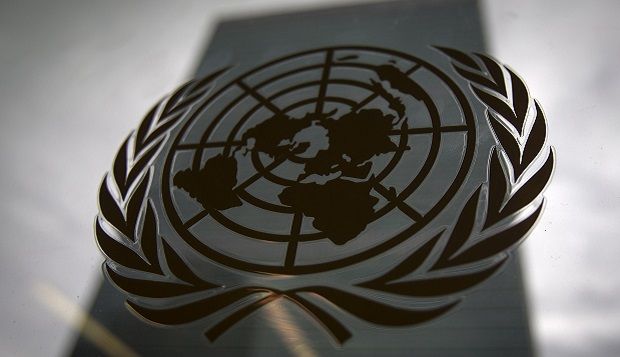
UN reform: From "deep concern" to effective action
Discussions on the reform of the United Nations, which has been going on for years, have acquired special significance at the 70th session of the General Assembly, in the context of Ukraine and Syria crises.
There are more calls from the rostrum of the UN General Assembly for transformation of the organization engaged in preserving global security. In particular, the majority of the camp is in favor of the expansion of the UN Security Council both in terms of permanent and non-permanent members, to ensure equitable geographical representation of all regions. The reform of peacekeeping system also remains one of the key issues. It must undergo fundamental changes to meet the challenges of our time. In addition, one of the central topics in the issue of reforming the Security Council is the recent French initiative to limit exercising of a veto right by permanent member states.
Today the Security Council consists of 15 member states: five permanent members - the United States, China, Britain, France, and Russia - and ten non-permanent members with a two-year authority (five of them are changed annually). The permanent five are the World War II Allies. They can apply sanctions against other states, and, if necessary, resort to military coercion. Each of the five permanent members has a veto right and can actually block any resolution of the UN Security Council.
Germany and Japan, are the second and third most prominent donors after the United States in terms of contributions to the UN, argue that they deserve a permanent seat on the Security Council. In 2004 these countries, together with India and Brazil, have united in the so-called Group of Four (G4), stating their desire to obtain a permanent seat in the Security Council, the structure of which is obsolete nowadays and does not reflect an actual global alignment of world powers.
Indeed, the last reform of the UN Security Council was carried out back in 1963, when the number of its members was increased from 11 to 15 states. Finally, in 2014, it was decided to establish a working group to study the possible expansion of the Council with permanent and non-permanent members.
During the 70th session of the UN General Assembly in New York, Germany reiterated its will to expand the Security Council. At a meeting with her counterparts from Brazil, India and Japan, German Chancellor Angela Merkel said: “We need a new method of work to solve problems. That makes reform of the Security Council necessary, reform which reflects the real power in the world better than the situation today."
"The current atmosphere is that not only we four but many others don't agree with the structure and the working method of the Security Council," Merkel told her foreign colleagues. "We want to take others with us to reach a modern working structure of the Security Council which suits the 21st century."
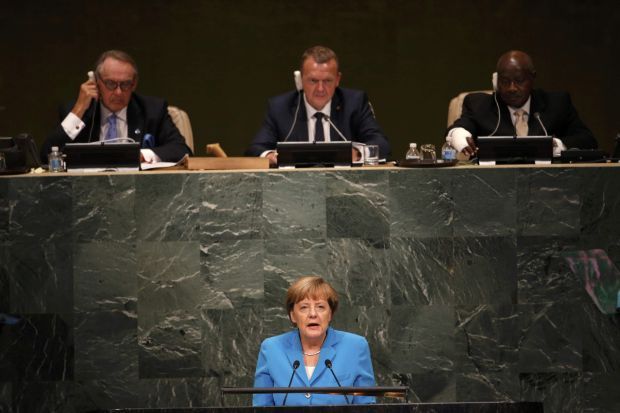
U.S. President Barack Obama supported the German Chancellor in his speech. Among other things, the U.S. leader has proposed to include in the Security Council at least one representative of the African continent. Obama also stressed that in order for the Council to continue being an effective body, it must take into account all the different trends of recent decades. He said that “the United States is supportive in concept of modifications to the structure of the United Nations Security Council.”
He also added: “As a matter of principle, I would think that there should at least be one representative from the African continent on the Security Council, along with representatives from the other regions of the world and some of the other powers that have emerged.”
The absence of the African representatives in the UN Security Council has long caused dissatisfaction on the African continent, as was stated in an address by South African President Jacob Zuma. “No reform has been made to the restructuring of the Security Council since the founding days of the organization,” the president said. “It is unacceptable and unjustifiable that more than one billion people in the African continent are still excluded as permanent members of the key decision making structure of the United Nations, the Security Council.”
It is interesting that Russian President Vladimir Putin has also expressed readiness to discuss changes in the organization.
“It has now become commonplace to see that in its original form, it has become obsolete and completed its historical mission,” said Putin. “Of course, the world is changing and the U.N. must be consistent with this natural transformation. Russia stands ready to work together with its partners on the basis of full consensus, but we consider the attempts to undermine the legitimacy of the United Nations as extremely dangerous.”
Reconsidering the UN architecture
Ukrainian President Petro Poroshenko has not stayed aloof from the general calls for changes to the UN. At the Peacekeeping Summit, he said that for the sake of preserving peace and strengthening of the United Nations the organizations needs to be reformed. According to the Ukrainian president, a solid guidance for such a reform could be provided by “the recent initiatives of the UN Secretary-General, in particular on comprehensive reviews of the UN peacekeeping and peacebuilding architecture, as well as the report of the High-Level Independent Panel on Peace Operations.”
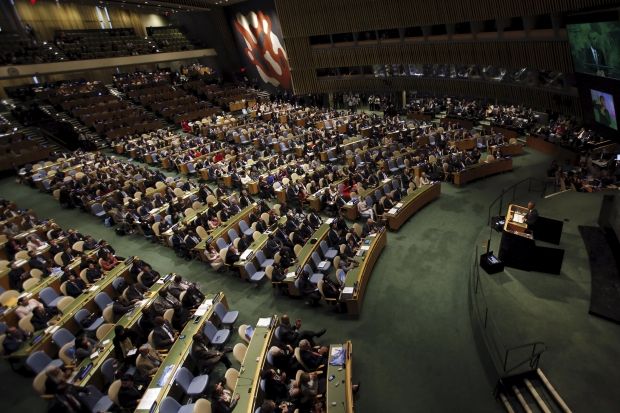
Actually, the main change offered by UN Secretary-General Ban Ki-moon in his 139-page report on the reform of peacekeeping should be the speed of deployment of peacekeeping forces after the Security Council approves their use. Highlighting the needs for comprehensive reform, Ban Ki-moon pointed out the first one, which is “predictable and effective military capabilities -- especially critical enablers that have a high degree of readiness and meet UN standards.”
The action plan is to be worked out by the beginning of 2016 on deployment of fully functional rapid reaction force to protect civilians in any part of the globe as early as in 2-3 months after the UN Security Council decides to send peacekeepers. To do this, the UN must have rapid response units in its disposal.
UN Secretary-General also believes that fundamental changes must be introduced into the format of peacekeeping operations to conform to the challenges of today and tomorrow.
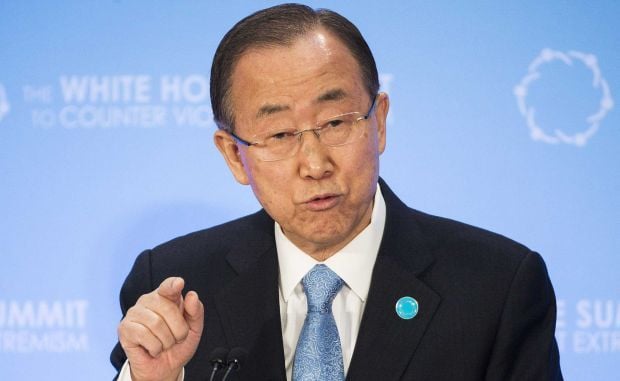
An urgent need
Oleksandr Khara, a diplomat and expert from “Maidan of Foreign Affairs” said that the need for UN reform is long overdue. "In general, the UN system is not justified, since the world has changed in 70 years. There is no more ideology-based bloc confrontation, but on the other hand, we can say that there is a free world, democratic states and a handful of authoritarian countries with murderous regimes such as Syria and Russia," said the diplomat.
"We should not forget that over the past 20 years, Russia has led wars both abroad and within its own territory. And until now, Chechnya and Dagestan are still under a special regime, with constant so-called counter-terrorism operations. Also in today's world there are many non-state actors, terrorist networks and other similar organizations that pose a threat to the global security and individual states. That is, the world has changed, but the mechanisms that were laid out in 1945, not quite correspond to reality today," he says.
In this regard, the need to reform the UN Security Council, the body which is responsible for the maintenance of peace and security and is the only institution that adopts binding resolutions, is long overdue. At the same time, according to the diplomat, there are several other lower bodies and courts, which are also in a dire need of reform to meet the challenges of our time.
"The UN can’t cope with the new challenges and threats to security and global economy, with fighting economic injustice, global warming and other things. But, on the other hand, we are not seeing that the countries are willing to drastically change the system," said Oleksandr Khara.
Delayed response of the United Nations
This often results in the conflicts, which the UN is trying to solve, "unfortunately ending with a frozen stage, then renewing again," said director for military programs at the Razumkov Center Mykola Sungurovsky. "Roughly speaking, the intervention of the UN makes things easier for no one," he said.
"It is necessary to search for tools. Plenty of alternatives can be offered, the question is, who puts them forward and what interests they pursue. It’s still an open question, how the unification will go of these ideas into one global strategy. It would be great if the Security Council focused on the early stages of the escalation of conflicts rather than on their resolution," said Sungurovsky.
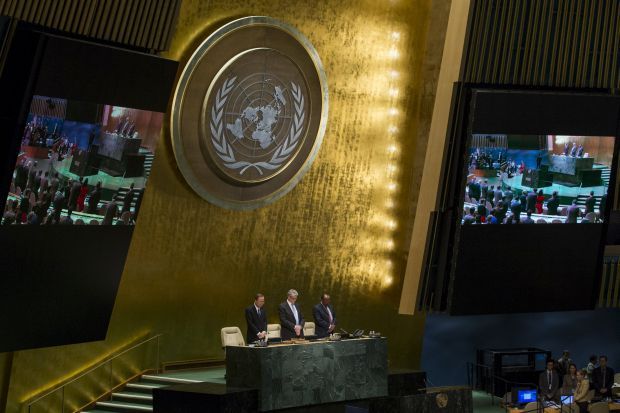
According to the expert, without this any action by the UN will not be timely, and this will have a negative impact on the resolution of conflicts. "It is necessary to reform the procedural aspects, crisis management, and better planning of operations," he said.
As for the issue of expansion of membership in the Security Council, the expert believes it to be an obvious thing, because the Southern states have now come to the forefront. The countries of the North and the West mainly fund the peacekeeping mission, while the South Africa and Asia provide the most manpower. Considering that Germany is one of the major EU states, meaning it has a global impact on the entire security system, it should also become one of the permanent members of the UN Security Council.
In turn, political analyst Taras Chornovil notes that, in the context of the reform of the UN as a structure, it needs more imperativeness of its decisions requiring unconditional implementation. "To increase the importance of the resolutions of the UN General Assembly, they need to become more imperative on some issues," he said.
In this regard, the expert predicts the Statute may be revised regarding the requisite that "if the resolution gains a qualified majority (two-thirds or three-quarters of member states - this is debatable) during the vote at the General Assembly, in this case it becomes imperative, kind of like it is at the UN Security Council."
"That is, if the country has vetoed the Security Council resolution, it can be adopted through the General Assembly and become fully imperative, rather than having a consultative, advisory status. These issues are seriously considered, and Ukraine insists on them," says the analyst.
In addition, the expert points out the need to increase the role and influence of the United Nations in conflict zones. In particular, it’s about strengthening the involvement of the UN peacekeeping organizations, simplifying the deployment of peacekeeping forces and revising the scope of a mandate of such peacekeeping operations. According to Chornovil, the mandate of the peacekeeping forces needs to provide for great rigidity and a wide scope of rights.
A veto right or a license to kill
The issue of the abuse of the veto right was raised by France, a permanent member of the UN Security Council. In particular, its latest initiative involves not using the veto in cases of mass atrocity.
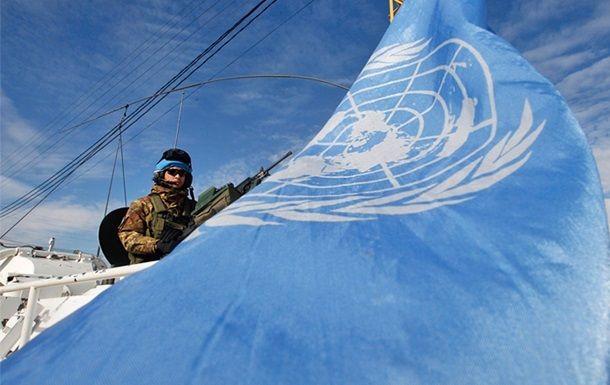
The France’s ideas have already been supported by more than 100 UN member states. In its turn, Ukraine favors a gradual restriction of the right of veto at the UN. “Ukraine stands for the gradual limitation of the veto right with its further cancellation,” said Petro Poroshenko in his address. “Veto power should not become an act of grace and pardon for the crime, which could be used anytime and ‘pulled off from the sleeve’ in order to avoid fair punishment,” said the president hinting at Russia’s abuse of its veto right.
The Ukrainian Presidential Administration admits that in the coming days a UN Resolution may be adopted which would limit the right of veto of the permanent members of the Security Council.
"This has been discussed a lot by many, except for some of those countries - permanent members of the UN Security Council. By the way, President Poroshenko said that in matters relating to mass atrocities, the veto is a license to kill. However, this reform is not likely to succeed now. It will be blocked, at least by Russia or China," said Taras Chornovil.
A foreign affairs expert Oleksandr Khara shares this opinion. "Depriving the permanent members of the UN of their veto right is theoretically possible, of course. But in reality, it’s not. It will mean that the member states will have to limit themselves by not exercising their veto right, and I don’t see such a possibility on the part of the Russian Federation," he said.
"Russia has changed its legislation. Instead of the primacy of international law over national legislation, it is now on the contrary. That is, Russia does not consider itself obliged to carry out its international obligations," said the diplomat.
"It will be selective in fulfilling agreement or conventions, and it’s only if they benefit their national interests. That is how Putin and his entourage see it," the expert said.
In turn, Mykola Sungurovsky, director of military programs at the Razumkov Center, is convinced that the veto mechanism is not completely obsolete. "In order to somehow neutralize the negative impact of some country vetoing resolutions on sensitive issues of conflict response and conflict prevention, there is a procedure established by the General Assembly in Resolution No.377 adopted in 1950 titled "Uniting for Peace." It stipulates that if the Security Council is blocked by the veto of a permanent member state, the issue can be considered by the General Assembly. The annex to this Resolution details the corresponding procedure," he said.
According to him, Ukraine had to take advantage of this mechanism, rather than wait until the Security Council is reformed and Russia is deprived of its veto right.
Kostyantyn Honcharov

